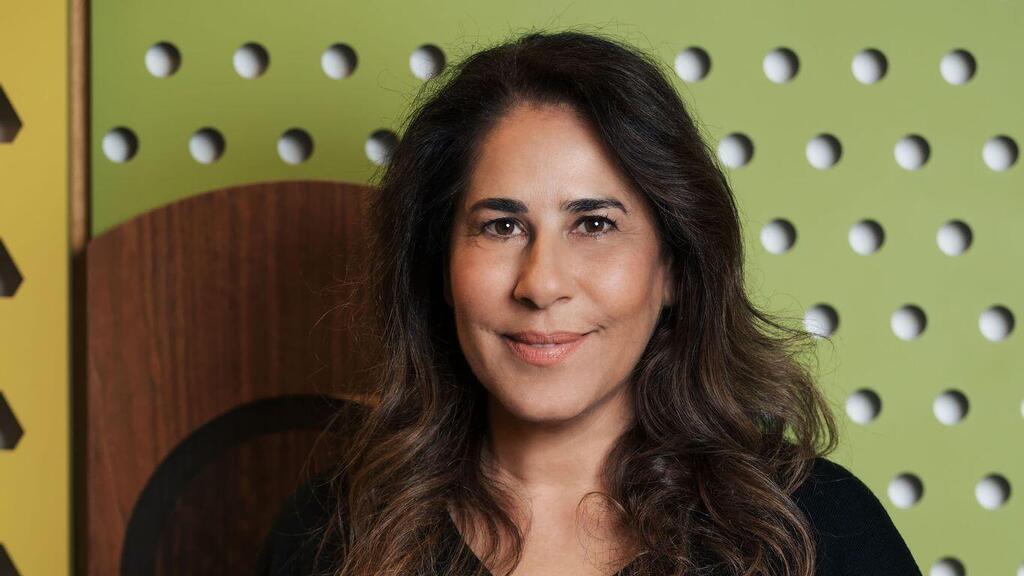
From Nir Zuk to Omri Casspi: The unexpected winners of the historic Wiz deal
The Palo Alto Networks founder and NBA player turned VC are just two of the surprise winners in the deal. The likes of Shlomo Kramer, Mickey Boodaei, and Marius Nacht are also all set to make a handsome profit through their investment in Gili Raanan’s Cyberstarts fund, which is believed to hold a $900 million stake in Wiz.
Many offices in central Tel Aviv celebrated earlier this week following the Wall Street Journal’s report that Google is in advanced negotiations to purchase Wiz for an astronomical amount of $23 billion. This is excellent news for all Israelis, who will benefit from the taxes paid by the company's founders and employees if and when the deal is signed. However, some Israelis will earn a little more, including some of Wiz's competitors. The list of surprise beneficiaries from the Wiz-Google deal clearly illustrates how closed and cohesive the Israeli cyber industry is. You could even say it's a "clique" that was forged not only in the trenches of Startup Nation but also in the corridors of IDF units like 8200 and 81, where the Israeli and global cyber reserve is built.
According to data published on Wednesday by Startup Nation Central, even before this historic deal, Israel had overtaken the U.S. in the ratio of investments in cyber companies. In 2018, cyber was responsible for 20% of all capital raisings in both Israel and the U.S. Over time, the industry's share in the U.S. has decreased to 13%, while in Israel, it has been on a constant rise. In the first half of 2024, cyber investments accounted for half of all capital raisings in the Israeli ecosystem. In quite a few cases, these startups are founded by former soldiers from units 8200 and 81, while in some the founders are repeat entrepreneurs. So, who are the Israelis benefiting from the local "cyber gang" due to the Wiz deal?
1. Nir Zuk
The most surprising name is Nir Zuk, the founder of Palo Alto Networks, the largest cyber company today, trading at a valuation of $110 billion on Wall Street. Zuk is a limited partner (LP) in Gili Raanan's Cyberstarts venture capital fund, which was among the first investors in Wiz. According to unofficial data, Cyberstarts owns 4% of Wiz shares, which will be worth $900 million in the Google deal after selling half of the holding to the Blackstone investment fund in 2021. Ironically, Palo Alto is one of Wiz's main rivals and is one reason for the sale—the competition with Zuk's company is tough. Palo Alto, thanks to its size and deployment in all areas of cyber except for identity management, has become a market tone-setter and recently decided to give away some products for free, pushing for consolidation in the cyber market. It's hard for Wiz to fight alone against Palo Alto, which can give away its version of the cloud security system almost for free while making a profit on other products. Wiz has also tried to build a broader platform by emulating Palo Alto's acquisition strategy but is only at the beginning of this journey after failing to buy SentinelOne or Lacework. Zuk, who admittedly does not need this exit to get rich, will benefit twice—both personally from his investments in Cyberstarts and by eliminating a strong competitor. Google will integrate Wiz's solution as part of its cloud value proposition and will not compete directly with Palo Alto. Along the way, Wiz will also stop "annoying" Zuk with rapidly changing valuations, much like Zuk did in the past to Gil Shwed, his former boss at Check Point, which now has a market cap of "only" $19 billion. Two years ago, Zuk said in an interview with Calcalist: "If Wiz is worth $6 billion, Palo Alto is worth a trillion."
2. Shlomo Kramer
Shlomo Kramer is another "elder" of the Israeli cyber club, who, together with Shwed and Marius Nacht, founded Check Point, retired, founded Imperva (which was also sold), and went on to establish Cato Networks. Recently, he competed head-to-head with Wiz to be the next big cyber IPO to land on Wall Street. Kramer is also invested in Cyberstarts privately and is expected to benefit from a quick return on investment in the four-year-old company. Unlike Check Point, Cato does not directly compete with Wiz, but the current exit still brings Kramer additional profit. Google's deal will set a new standard for multiples in the cyber market and may attract an attractive buyer for Cato or allow it to receive a higher valuation in the IPO. Cato was valued at $3 billion in its last fundraising round and is aiming for a $5-6 billion valuation in the IPO. Cato's revenue rate is admittedly around half that of Wiz's.
3. Mickey Boodaei
Mickey Boodaei is one of the most successful entrepreneurs and investors in the local cyber world. He co-founded Trusteer, which was sold to IBM for over $600 million, and Transmit Security, where he is now CEO and co-founder, which is also a unicorn in identity and access management. Boodaei is considered a successful investor, having made most of his investments independently. Boodaei has also invested in Gili Raanan's Cyberstarts, so he will benefit from the fund's huge profit on Wiz. Interestingly, Boodaei and Rakesh Loonkar, both long-time partners and founders of Transmit Security, and Island founders Dan Amiga and Michael Fay, recently established Picture Capital, a new investment fund that will compete with Raanan's fund. The fund raised $120 million to invest in early-stage cyber companies, with Boodaei and Amiga primarily investing in the fund and Loonkar managing it after retiring from Transmit.
4. Yevgeny Dibrov
Yevgeny Dibrov, co-founder and CEO of cyber company Armis, is a friend of Assaf Rappaport from their days in Unit 81 of the Intelligence Corps. Rappaport was Dibrov's team leader and later recruited him as one of the first employees at Adallom, the first company founded by Wiz's founders, which was sold to Microsoft for $320 million five years ago. Dibrov will profit from the exit twice. He invested in Wiz directly in one of the fundraising rounds and is also invested in Cyberstarts. Rappaport, by the way, personally invested in Armis from its early stages and still owns shares in it today, with Armis valued at $3.4 billion in its last fundraising.
5. Marius Nacht
Marius Nacht, the third leg in the Check Point trio, has been moving away from the cyber field in recent years, dedicating his personal fortune to life sciences and the digital bank he co-founded with Amnon Shashua but withdrew from before it launched. A few years ago, he founded the venture capital fund aMoon, specializing in investments in the medical field, but he still invested privately in Cyberstarts.
6. Merav Bahat
Merav Bahat, founder and CEO of Dazz, is among the beneficiaries of the deal. Bahat previously managed Microsoft's cyber activities with Assaf Rappaport, Wiz's CEO. She is estimated to have invested directly in Wiz at its early stages and is expected to record a profit of millions of dollars when the exit is completed.
7. Nadir Izrael and Michael Shaulov
Nadir Izrael and Michael Shaulov are other leading names from the cyber community on the list of future beneficiaries from the Wiz deal, as they belong to Gili Raanan's investor club. Izrael, Dibrov's partner in founding Armis, also invested in Cyberstarts. Izrael, who served in Unit 8200, is Armis's chief technology officer. Michael Shaulov is the CEO of Fireblocks, his unicorn in the cyber field, valued at $8 billion in its last fundraising. Zuk, Boodaei, Amichai Shulman, Kramer, and Dibrov invested in Shaulov's startup in its early stages. Before that, Shaulov sold his previous startup, Lacoon, to Check Point for $100 million in 2015.
8. Amichai Shulman
Amichai Shulman co-founded cyber company Imperva with Shlomo Kramer. After the sale, Shulman stayed with the company briefly before becoming an entrepreneur and investor, with the Cyberstarts fund among his investments.
9. Omri Casspi
Omri Casspi, the first Israeli basketball player to play in the NBA, has been building his presence in high-tech investments. He joined Raanan's fund early on. Casspi has his own venture capital fund Sheva, which has raised $50 million. Although it competes for investments in new cyber companies, Casspi will benefit from Cyberstarts' extraordinary profit on Wiz.
10. Ofer Ben Noon
Entrepreneur Ofer Ben Noon, who recently sold Talon Cyber Security to Palo Alto for about $600 million, will benefit from the exit thanks to his investment in Gili Raanan's cyber fund.















